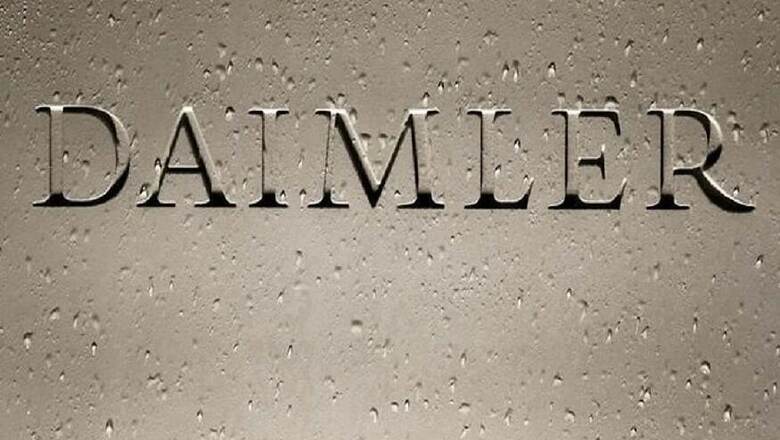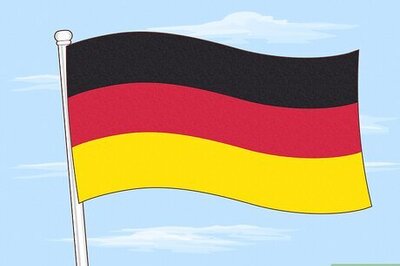
views
Daimler, the world's biggest luxury carmaker, said it will speed up development of electric vehicles, aiming for 10 new models within five years rather than eight.
"Emissions-free driving is at the centre of our strategy. In the coming years we will spend 10 billion euros ($10.8 billion) on building up our electric fleet," chief executive Dieter Zetsche told investors in Berlin, promising battery-powered versions of vehicles from the tiny Smart to Mercedes SUVs by 2022.
Until now, the Stuttgart-based firm had promised the expansion of its electric range would be completed by 2025, with between 15 and 25 percent of Mercedes sold being electric by that date.
The carmaker will invest one billion euros in battery production, half of it going to its facility in Saxony, eastern Germany.
Stuttgart-based Daimler also produces a range of plug-in hybrids – equipped with both an electric and combustion motor – and will expand its electric offering to heavier vehicles with a first all-electric truck this year.
But "no-one can say for certain how long it will take for electric cars to outnumber conventional motors on the market," Zetsche said, promising to "use all available means to reduce carbon dioxide" emissions, including more efficient combustion engines and "modern" diesels "emitting significantly less CO2 than petrol engines".
German prosecutors last week launched an investigation into Daimler for "fraud and fraudulent advertising," suspecting emissions from the manufacturer's diesel cars may be higher than allowed.
Distrust of diesel technology has been stoked by the Volkswagen emissions cheating scandal which erupted in late 2015.
German regulators and the transport ministry in Berlin "have not found breaches of the law in measurements of our vehicles," Zetsche told shareholders Wednesday, calling for "clear rules and transparent testing procedures" to allay the public's concerns while promising "full cooperation" with the authorities.
Like other German carmakers, Daimler was forced to recall hundreds of thousands of diesel vehicles in April 2016 after German authorities found irregularities in emissions measurements.
European manufacturers appear to have capitalised on vague EU regulations by allowing their vehicles to deactivate exhaust filtering when outside temperatures are low, saying that the procedure helps protect the motor.
Also in April last year, Daimler opened an internal investigation headed by a law firm into how its cars' polluting emissions were certified in the US, at the request of American authorities.
US drivers have accused the group of deliberately evading emissions limits and making fraudulent claims about its cars' environmental characteristics in advertising.
Looking to the future, "we are the first manufacturer to have brought diesel vehicles onto the market that already fulfil EU emissions limits planned to come into force in September 2017," Zetsche said.
The spectacularly-moustachioed CEO prefers to emphasise Daimler's bets on a high-tech future, including autonomous driving and "mobility services" like taxi-hailing and car sharing apps -- aimed at customers "who don't necessarily want to have a car of their own."
Daimler in February reported record results for 2016, booking almost 9.0 billion euros of profit on revenues of 153 billion and becoming the world's largest luxury car maker by unit sales.
But investors complain that dividend payments are not keeping pace with the carmaker's growth, as the big outlays needed to power Zetsche's futuristic schemes eat into profitability.



















Comments
0 comment